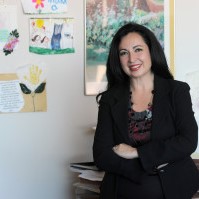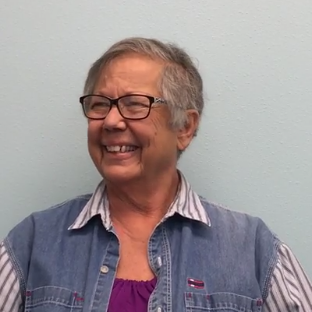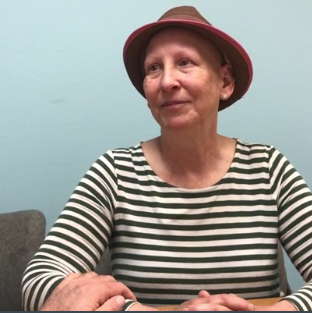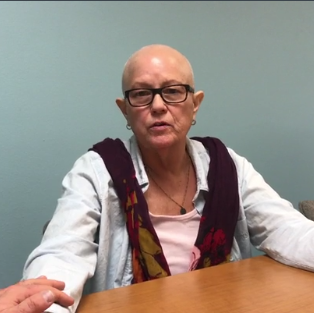Our relationships shape our outlook, our connections, and our mindset. This is true of family and friends – and our physicians. A positive patient-doctor relationship is a powerful tool for helping maintain health and fight against illness, including cancer.
People who have a positive relationship with their doctor are more likely to attend routine check-ups, share important health information, and follow medical advice and guidelines. They’re empowered to take control of their health and to confidently take the steps required to manage any health issues that arise. As a cancer patient, having a positive relationship with your doctor is critical.
What Makes a Great Patient-Doctor Relationship?
Four key elements underpin any positive patient-doctor relationship. They are:
- Trust. As a cancer patient, you’re in a vulnerable position. You need to know you can trust your doctor to listen to you, care about you, take your concerns into account, and offer solutions and treatment plans you’re comfortable with. That trust goes both ways: your doctor also trusts you to share important information, feelings, or updates with them. Mutual trust is a powerful basis for a great patient-doctor relationship.
- Knowledge. You expect your oncology team to be well-versed and up to date in their field, but also in how well they know and understand you and your medical history. A doctor who knows their patients can provide tailored, personalized care – and demonstrates that they care about you as a person, not just a patient. Doctors who take the time to get to know their patients foster positive long-term relationships with their patients.
- Respect. Knowing that your doctor is on your side matters. You want to be heard, listened to, and have your needs taken into account during your cancer treatment. Your doctor should ask for your consent, maintain your privacy, explain medical terms and treatments to you, and consider your preferences when making recommendations. You expect your doctor to be your advocate – and with good reason.
- Loyalty. In a positive patient-doctor relationship, you know that your doctor is committed to your long-term care and health outcomes and that they’ll be there to support you and oversee your care at all stages. When your doctor is loyal to you, you respond in kind, resulting in a mutually beneficial relationship.
Finding the Right Doctor for You
Rapport matters when deciding on a doctor for your cancer treatments. You need to feel comfortable, listened to, and in good hands. The patient-physician relationship is as personal as it is professional, so don’t be afraid to talk to a few doctors before deciding who will provide your care. When choosing a doctor, think about:
- Bedside manner. How well you get along with your doctor is the basis of a great patient-doctor relationship. You should feel comfortable, nurtured, and listened to.
- Decision making. Your doctor might be the expert, but you still have your own individual preferences and needs as a patient. Feel out how collaborative they are and whether they take a shared decision-making approach so that you can gauge how much autonomy you’ll have over your own care.
- Your care team. Cancer treatment can involve an extended care team, so it’s good to know the faces assigned to your treatment and who will be working with you throughout your treatment—knowing that you can trust your team matters.
- Board certification. Understanding your doctor’s bonafides can help you build trust in their recommendations and decision-making. Ask about their credentials, certifications, and any expertise relevant to your illness.
- Technology and premises. Quality care takes quality people – but also a well-equipped setting. When choosing your doctor, consider whether their clinic has everything required to deliver the care you need or whether you’ll need to travel off-site.
- Insurance and payments. Check whether your insurance covers a prospective doctor. Knowing that your care is covered can be an enormous weight off your shoulders and help build a relationship of care and understanding – rather than one where the financial aspects are the focus.
At SWWO, We’re Always Patient-First
At SWWO, we believe that medicine is about relationships first and foremost. Our care team works tirelessly around the clock to deliver tailored, personalized care that aligns with the needs and expectations of our patients. We know that expertise, consistency, seamless care and a friendly face are all vital to positive patient outcomes, and we make good on that promise every day.
If you’re seeking a cancer care team in Albuquerque, talk to the team at SWWO today. We’re always here for you.
TESTIMONIALS

“She made sure I understood everything. If I had questions after hours, I could always call her on her cell. I never felt like I was a burden. I know Dr. Finkelstein is here for me.”

“I was very impressed when I met Dr. Finkelstein. She was relatable. She has two young children and a career. I have two young children and a career.”

“They were very empathetic, very knowledgeable, very efficient and they are my friends today. I love them all. I come in here just to say hi to everybody and Dr. Finkelstein. I have complete and total trust in her and her abilities. Everything she has told me and done is just above board and I have complete faith in her.”

“I was so comforted and excited to have someone listen and hear what I had to say and actually supported me. I appreciated the balance immensely of true knowledge and willingness to be open to what I was finding in regard to alternative medicine.”

“I’m grateful that Karen came into my life. She has so much integrity and love for her patients and if you end up here you are in a good place.”
OUR MISSION
To help women triumph over their gynecologic and oncology needs in a warm and nurturing way.

